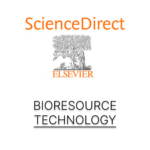
Energy self-sufficiency and greenhouse gas emission reductions in Latin American dairy farms through massive implementation of biogas-based solutions
ELSEVIER, Energy Conversion and Management, vol. 261, 115670, June 2022
Authors: J. Villarroel-Schneidera b ; Lena Höglund-Isakssonc ; Brijesh Mainalid ; J. Martí-Herreroe f ; Evelyn Cardozob ; Anders Malmquista ; Andrew Martina
a Department of Energy Technology, School of Industrial Technology and Management (ITM), KTH Royal Institute of Technology, Stockholm SE 100 44, Sweden
b Centro Universitario de Investigaciones en Energías (CUIE), Facultad de Ciencias y Tecnología (FCyT), Universidad Mayor de San Simón (UMSS), Cochabamba, Bolivia
c Air Quality and Greenhouse Gases Program (AIR), International Institute for Applied Systems Analysis (IIASA), 2361 Laxenburg, Austria
d Department of Built Environment and Energy Technology, Linnaéus University, 351 95 Växjö, Sweden
e Biomass to Resources Group, Universidad Regional Amazónica Ikiam, Tena, Ecuador
f Building Energy and Environment Group, Centre Internacional de Mètodes Numérics en Enginyeria (CIMNE), Terrassa, 08034 Barcelona, Spain
Abstract:
The transition towards sustainable economies with improved resource efficiency is today’s challenge for all productive sectors. The dairy sector in Latin America is growing without considering a clear path for sustainable energy and waste management solutions. This study proposes integrated solutions through a waste-to-energy approach. The solutions consider biogas production (via cow manure) as the main energy conversion pathway; technology solutions include biodigesters, power generators, and combined heat and power systems that supply not only the energy services demanded by dairy farms (for cooking gas, electricity, refrigeration and hot water) but also provide organic fertilizers. Biogas’ potential was estimated to verify whether it can cover the energy demands of the farms, while the levelized costs of producing biogas and electricity were the indicators for the techno-economic evaluation of the solutions. Greenhouse gas emission reductions were estimated by following IPCC guidelines. Specifically, the proposed solutions lead to energy self-sufficiency in most dairy farms with relevant biogas and electricity costs in the range of 1.7–3.7 and 6–12 USD cents/kWh, respectively. In addition, implementing the proposed solutions in Latin American dairy farms would allow annual greenhouse gas emission reductions of 32.8 Mton CO2 eq. with an additional 17 Mton if widespread use of the supplied organic fertilizers is achieved.































